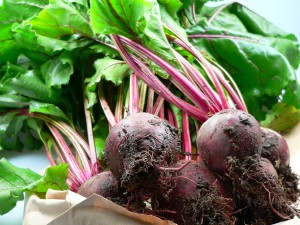Fighting Obesity With Food
August 17th, 2010 by Dr. Justin Hoffman
A seemingly paradoxical combination of words for a title – no? That is, most Americans, in so far as I might assume, might think of dieting (food avoidance) as the first step toward combating obesity and slimming the waistline. So how is it then, that eating more, can actually help you lose weight?
All food is not created equally. And just how nutritious a specific food is, can vary considerably. Some foods are rich in processed sugars, while others are rich in naturally occurring phytonutrients, minerals, and vitamins. Some foods are bulky, some dense and each with a different caloric value. A question I often receive from patients is : “…so, with all this information about food, what is important to know and how does it affect me?”
The answer is found in the nutrient /calorie relationship. Unfortunately, many practitioners don’t fully understand or utilize this health concept in their practices.
Well, the most calorie dense food groups include carbohydrates, proteins, fats and oils. And with a diet consisting predominantly of these four food groups, it is no wonder that 25% of all men and women in the United States are overweight or obese. The unfortunate and grim irony here is that the very “normal” meals we consume each day, consisting of primarily carbs, fat, oils and protein, are actually killing us. These foods are calorie dense and nutrient sparse.
So often, one of the most important things one can do, on a daily basis, is to eat large quantities of nutrient dense foods. An example of this type of food is dark leafy greens (kale, chard, collard greens). How these things may affect you is a matter of consequence. The key is to make the right choice.
Do you choose health?
